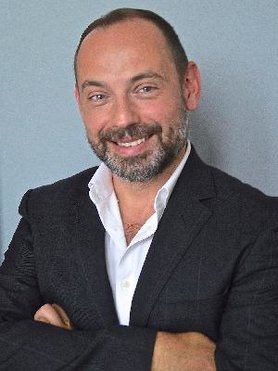

R.C. (Roberto Carlos) Rocco de Campos Pereira
R.C. (Roberto Carlos) Rocco de Campos Pereira
Profiel
Expertise
Biografie
Projecten
Academische achtergrond
Minibio Roberto Rocco (updated 2023)
Associate Professor of Spatial Planning and Strategy, Department of Urbanism, specialised in Governance of Urban Sustainability Transitions.
I am a scholar committed to understanding the relationships between society and the production and governance of the built environment. This means that I investigate how actors and institutions from the public sector, the private sector and civic society interact in planning, designing, governing and inhabiting the built environment, both formally and informally. These basic but foundational ideas explain much of my actions as an educator and researcher. I am an associate professor of spatial planning and strategy at TU Delft, a former consultant for the Union for the Mediterranean and Horizon Europe and Eramus project leader. My research focuses on urban, metropolitan and regional governance, social sustainability and spatial justice as frameworks for just urban sustainability transitions. These frameworks enable a critical understanding of urbanisation processes and also tools that enable planners to design for sustainable, fair and inclusive urban and regional development.
I have a multidisciplinary background in design, spatial planning and urban/economic geography. This background is the result of a trajectory that started at the Faculty of Architecture and Urbanism of the University of São Paulo, one of the highest-ranked architecture and planning courses in Latin America and had stations at the Institut Français d’Urbanisme (later merged with l’Institut d’Urbanisme de Paris to form the new École d’Urbanisme de Paris), the University of Hertfordshire (UK) and finally TU Delft, where I have worked since 2004 (please, see my CV). Since obtaining my PhD at TU Delft in 2008, I have worked as an assistant and then associate professor for the chair of Spatial Planning and Strategy, led first by Professor Vincent Nadin and now led by Caroline Newton.
I work in the intersection between spatial planning, design, governance and sustainability, understood in its three crucial dimensions: social, economic and environmental.
My view, following Campbell’s, is that spatial planning and design must engage with “two converging, yet distinct social movements: sustainability and social justice” (Campbell, 2013, p.75). The integration of sustainability and justice is the bedrock for long-term, durable sustainability, especially when we consider that for sustainability to exist, its three essential components (environmental, social, and economic) must occur simultaneously (Larsen, 2012).
It is in this convergence that I see the future of spatial planning and my role in the Department of Urbanism. This gap must be urgently addressed, as inequity and unfairness in the distribution of burdens and benefits of development are widely recognised to undermine sustainability. The literature on socio-technical transitions is clear about the need to look at the socio-spatial relations where transitions take place. Most surprisingly, however, socio-technical transitions to sustainability mostly fail to incorporate concepts of justice, democracy and redistribution, the bedrock of social sustainability, and focus solely on the environmental aspects of sustainability (Campbell, 2013).
In Urban Transitions to Sustainability, we study the intricate interplay between urbanisation, environmental stewardship, and social equity in the pursuit of sustainable and just urban futures. My research delves into the multifaceted dynamics of socio-technica transitions, investigating how spatial planning, governance structures, and policy interventions impact the environmental, economic, and social dimensions of cities. I explore innovative strategies for enhancing urban resilience, reducing carbon footprints, and fostering inclusive communities with special attention to the three crucial dimensions of spatial justice (distributive, procedural and recognitional). Through analysis and collaboration with local stakeholders, I seek to uncover pathways to sustainable urban development that prioritise the needs of all citizens, address spatial injustices, and promote the harmonious coexistence of nature and society in an era marked by rapid urbanisation, democratic deficit and environmental challenges.
Expertise
Publicaties
-
2024
The TU Delft Strategic Planning Cycle
Roberto Rocco / Juliana Gonçalves / Hugo Lopez
-
2024
The challenges of high-quality development in Chinese secondary cities
A typological exploration
Yizhao Du / Rodrigo V. Cardoso / Roberto Rocco -
2023
A Manifesto for the Just City
Volume 3
-
2023
Big Shifts in Spatial Planning in The Netherlands
Caroline Newton / Cinco Yu / Darinka Czischke / Gregory Bracken / Juliana E. Gonçalves / Lukas Höller / Marcin Dąbrowski / Lei Qu / Remon Rooij / Roberto Rocco / Rodrigo Cardoso / Simbarashe Chereni / Verena Balz
-
2023
Creating Built Environments
Bridging Knowledge and Practice Divides (Review)
Roberto Rocco -